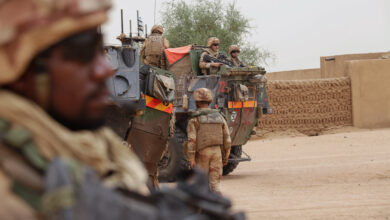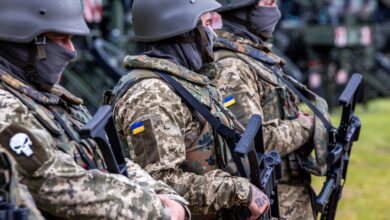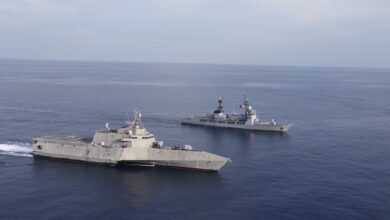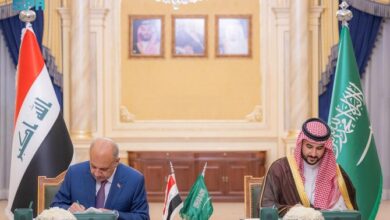European Union foreign ministers on Monday, February 17 agreed to a naval operation to enforce an arms embargo on war-torn Libya, overcoming objections from countries who feared it may encourage new migrant flows.
The mission will be authorized to intervene to stop arms shipments, E.U. diplomatic chief Josep Borrell said, insisting the vessels would not be “having a promenade” in the Mediterranean.
The E.U. hopes to have the operation, focused on the eastern part of the Libyan coast, up and running by the end of March, Borrell said, though many details – including the rules of engagement for naval units – are yet to be worked out.
The conflict in the oil-rich but turbulent North African state was on the agenda for E.U. ministers meeting in Brussels, but Borrell had played down hopes of an agreement over objections from Austria and Hungary.
Making the arms embargo work is seen as crucial to stabilising the Libyan conflict, where the U.N.-recognized Tripoli-based Government of National Accord is under attack from the self-styled Libyan National Army forces loyal to General Khalifa Haftar, which control much of the country’s south and east.
Military commanders will propose many of the operational details, including the number of ships and the exact geographical scope, for E.U. foreign ministers to approve at their next meeting on March 23.
The E.U. hopes the new mission – which replaces Operation Sophia, set up in 2015 to fight people smuggling across the Mediterranean at the height of Europe’s migrant crisis – will be up and running by the end of March.
‘Pull factor’ fear
Austria had led opposition to reviving Operation Sophia with ships to enforce the embargo, fearing it could reactivate a rescue fleet that would end up ferrying migrants across the Mediterranean to Europe.
Hungary, whose right-wing government has taken a tough anti-immigration stance, is understood to have supported Austria’s objections.
Italian Foreign Minister Luigi Di Maio and his Austrian counterpart Alexander Schallenberg insisted the new mission was quite different from Sophia.
“There is a basic consensus that we now want a military operation and not a humanitarian mission,” Schallenberg said.
German Foreign Minister Heiko Maas said there had been a long discussion about whether a naval element was needed but finally it was agreed it was “necessary to get a complete picture.”
“But it will be only in the eastern Mediterranean, where the weapons routes run,” Maas said, not near the current central Mediterranean migration routes.
Crucial to winning over skeptics like Austria was a provision that if the ships are deemed to be creating a “pull factor” – encouraging migrants to take to the sea in the hopes of being rescued and taken to Europe – the maritime part of the operation will be halted.
Borrell said that precise details of who would decide on this were still to be agreed, but it would likely be foreign ministers acting on the advice of military commanders.
Libya chaos
A senior U.N. official warned Sunday that a fragile truce in Libya agreed in January but regularly breached is “holding by a thread.”
World leaders agreed at a Berlin summit last month to end all external meddling in the conflict and stop the flow of weapons into Libya, but little has changed on the ground since then.
States including Russia, the United Arab Emirates and Egypt support Haftar, while the U.N.-recognized government led by Fayez al-Sarraj is backed by Turkey and Qatar.
“The arms embargo is being violated systematically and this is going to feed the fighters with an incredible amount of arms that make the ceasefire difficult and the truce very, very weak,” Borrell warned.
After a meeting of foreign ministers in Munich on Sunday – a follow-up to the Berlin conference – Borrell criticized Austria for blocking the Operation Sophia revival, saying it was absurd for a landlocked country which does not even have a navy to take such a stance.
Libya’s warring parties in UN-sponsored joint military commission talks
With reporting from AFP












